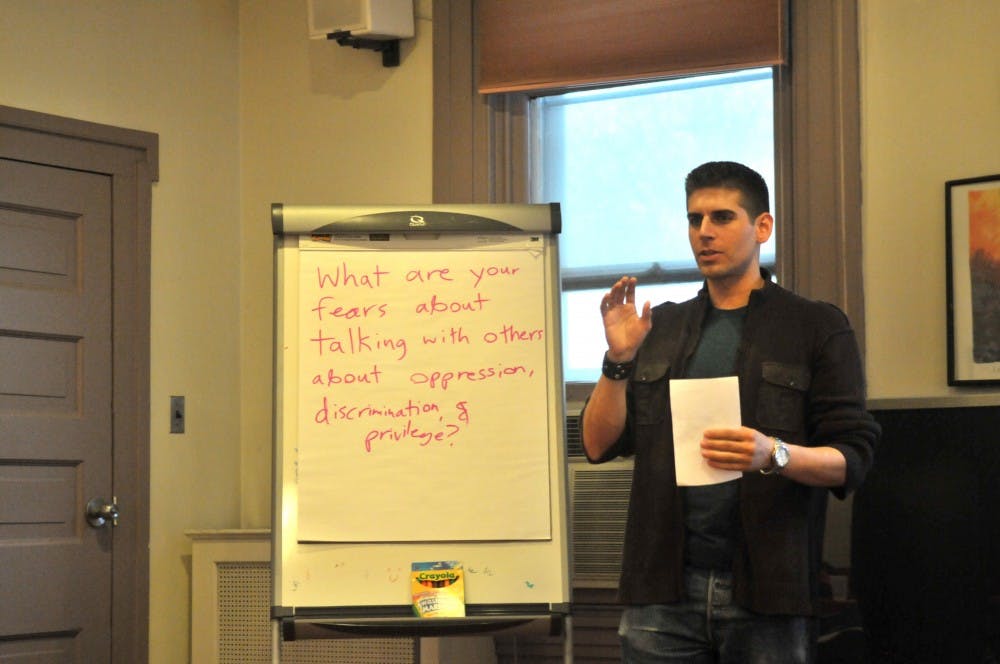
2004 College graduate Carlos Gomez was leaving his apartment in a rush one day, late for a meeting. While exiting his apartment building, he saw a black man on the other side of the door and unwittingly jumped back.
The door opened to reveal his landlady’s 13-year-old son, who Gomez described as “goofy” and “the most nonthreatening person.”
“I jumped back like he was a lion, or a guy with a machine gun. Where does that come from?” he said.
Gomez, a New York City-based poet, author and founder of Penn’s Excelano Project, discussed and analyzed similar stories of discrimination with about 15 students and alumni at the Greenfield Intercultural Center Saturday afternoon.
Called “Facing Your Authentic Self Across the Divide,” the interactive workshop aimed to explore issues of oppression and discrimination.
“Do you ever have a visceral reaction to something you totally socially or politically disagree with?” Gomez said. “Something happens that contradicts everything you believe in?”
Gomez emphasized that everyone has moments where they betray what they believe in.
In the workshop, Gomez asked everyone to spend one minute each telling stories of a time when they were the target of oppression or discrimination; a time when they perpetuated it; a time when they interrupted it; and finally, a time when they witnessed oppression or discrimination, but didn’t intervene.
After 60 seconds, Gomez called time. Regardless of if the story was finished, the next person began with a new one.
Gomez explained that one minute was just enough time for participants to speak openly and candidly, but not enough to filter what they were saying.
Gomez tied his story, which was an example of a time he was guilty of discrimination, to writing his new book “Man Up: Cracking the Code of Modern Manhood”. He explained that facing these kinds of personal weaknesses was the most difficult obstacle in writing an honest memoir.
“I am obsessed with being a hero. The hardest part of writing my book was sharing when I was a villain,” Gomez said.
While debriefing the workshop, some of the students commented that the fourth topic — sharing a time when they witnessed oppression or discrimination, but did not intervene — was the most difficult to discuss.
“The thing that struck me most was that we are not who we want to be,” said College sophomore Nadia Laher, the director of the Race Dialogue Project. “As someone who is always talking about this kind of thing, there’s pressure to always be that kind of person. It felt better to know that everyone messes up sometimes, and also knowing that you are still consciously trying to fight against it.”
After the workshop, Gomez attended a book signing and reading at the Penn Bookstore for “Man Up,” his memoir about coming to terms with one’s own identity against stereotypes and assumptions of “what we are supposed to be.”
The Daily Pennsylvanian is an independent, student-run newspaper. Please consider making a donation to support the coverage that shapes the University. Your generosity ensures a future of strong journalism at Penn.
DonatePlease note All comments are eligible for publication in The Daily Pennsylvanian.




